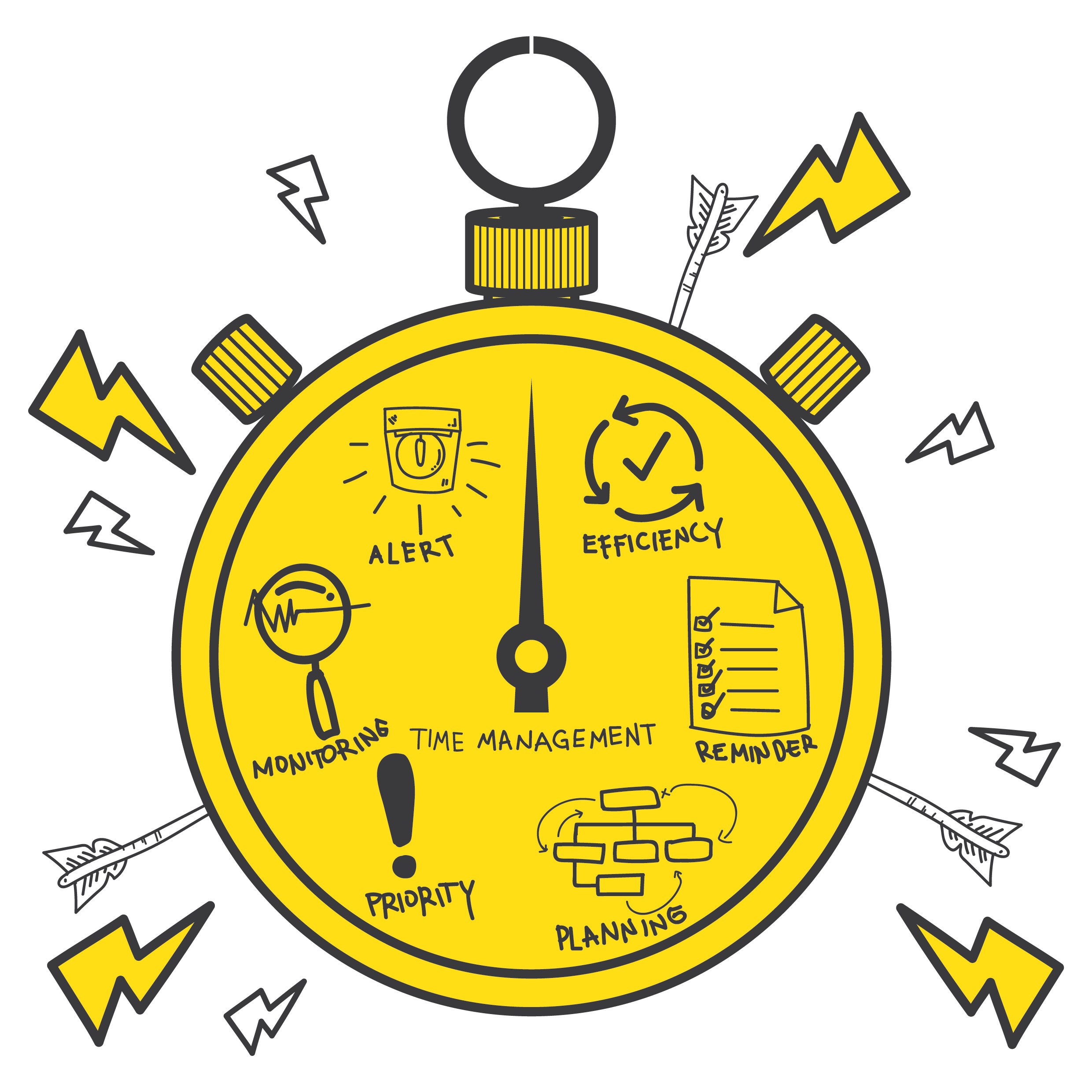Productivity Life Hacks for Med Students
- by
- Mar 25, 2022
- Reviewed by: Amy Rontal, MD

Are you struggling to balance academic, extracurricular and scholarly work? Do you constantly feel like 24 hours in your day are not enough? You may not be able to reduce your workload, but you have the power to change your approach toward your daily responsibilities.
Intentionally delineate the time you use. Forcing yourself to concentrate allows you to own your time fully and to accomplish more.
The following key principles can bolster success in medical school and beyond.
Intentionally Challenge Yourself
Instead of sitting down in front of your computer for hours, trying to concentrate on lecture slides after a busy day, determine how many slides you can thoroughly learn in forty five minutes. Or, instead of just doing your weekly load of laundry, challenge yourself to finish all of your weekly chores as quickly as possible. In the process of becoming more efficient, you will open up pockets of valuable extra time.
Be positive and balanced rather than overly rigorous or strict toward yourself. Your strategy should motivate and excite you rather than become a source of additional stress.
Clarify Your Priorities
Clarify your short term and long term goals.
Write down:
1. Your goals in the next few years
2. Your approximate daily schedules over the past week.
Compare the two lists, and identify which goals you are addressing on a regular basis and which goals you are neglecting in your daily life. Check out our blog post on optimizing the stress & anxiety curve for testing. Reflect on concrete actions you can add to your daily schedule, so those two lists become more in sync.
Make Tasks Portable
Take full advantage of apps or other tools that let you accomplish tasks anywhere. For example, UWorld has a mobile app that allows you to answer questions and to view explanations on your phone, instead of on a computer or laptop. You can also use a reminder or notes app on your phone to record a list of random tasks (such as making a call, ordering a gift or booking a flight) that you can complete on your own at any time.
Use Waiting Times
There are many pockets of five or ten minutes in any given day– use them wisely! Ten minutes of waiting in line at the grocery store could become an opportunity to answer twenty Anki cards. Five minutes of sitting in stalled traffic can be reframed as a chance to do breathing techniques and relax for a bit. Instead of focusing on how frustrating waiting for someone or something is, try to look at this time as an opportunity to work towards one of your goals. These little moments will accumulate to tangible progress over time.
Minimize Switching Between Tasks
Any time you switch from one task to another, that transition is not seamless; although part of your attention becomes engaged with the new task, another part of your attention remains engaged with the previous one.
Task switching is associated with increased amounts of errors and slower cognitive processing. Do your best to minimize the amount of times you switch between tasks. Seemingly innocuous breaks, such as checking your texts every twenty minutes or looking at your emails every other hour, can significantly hamper your productivity and ability to work on tasks.
Use Blocks of Concentrated Work
Intentionally delineate the time you use.
For example:
1. Set a timer for forty minutes
2. Dedicate that time to a specific task
3. Let yourself work only on this task.
During that concentrated block, if you think of an email you should send, an update you should check, or anything else you should do, write the thought down and immediately return to your task. Forcing yourself to concentrate allows you to own your time fully and to accomplish more. It also allows you to immerse yourself in a particular task, thereby fostering critical thinking and flow.
These strategies to improve your productivity in academic and work-related contexts will also improve your periods of relaxation. When you have concentrated spurts of fun, you can recharge, prevent burnout and keep your productivity and motivation going strong.
Of course, one of the best ways to stay productive is to have a detailed study schedule. Cram Fighter doesn’t just show you the tasks you have to study each day, but how much time it’s going to take and whether this is a reasonable workload. Make a schedule unique to you and get an accurate estimate of how long it will take so you can fine-tune your plan. Sign up for a free trial now!









